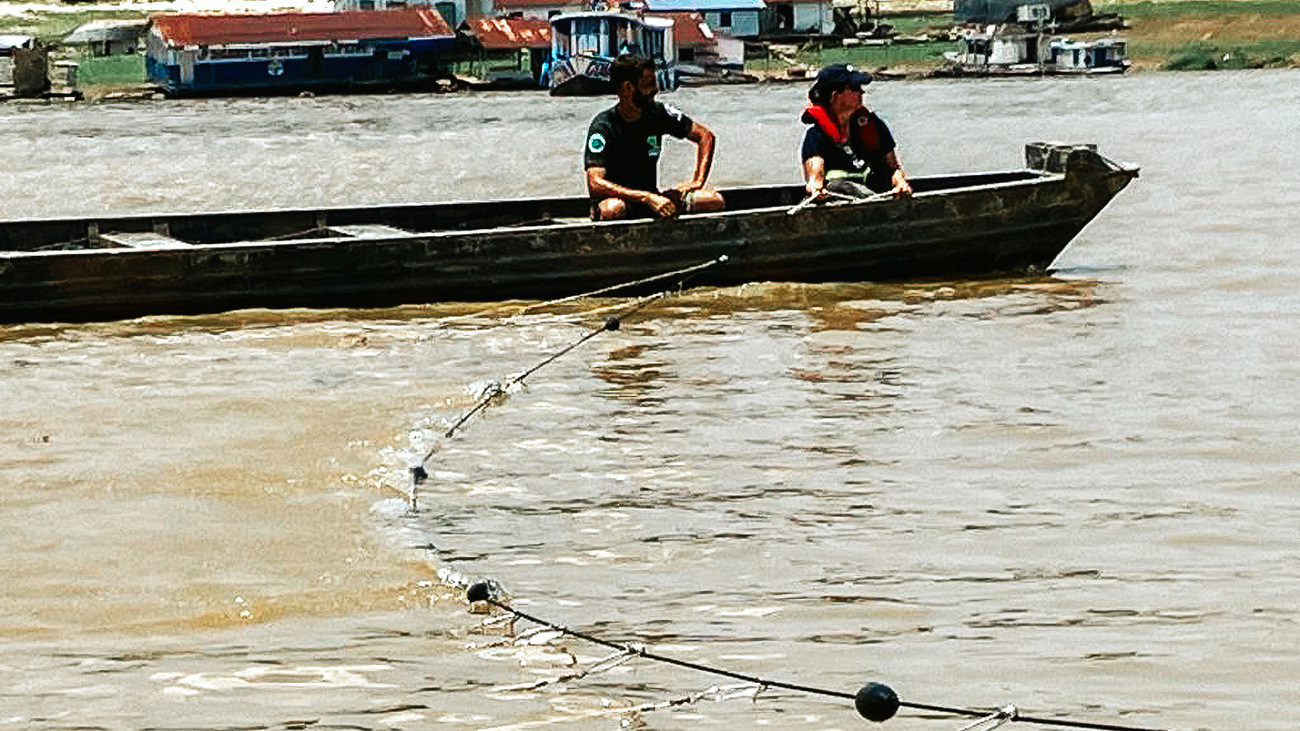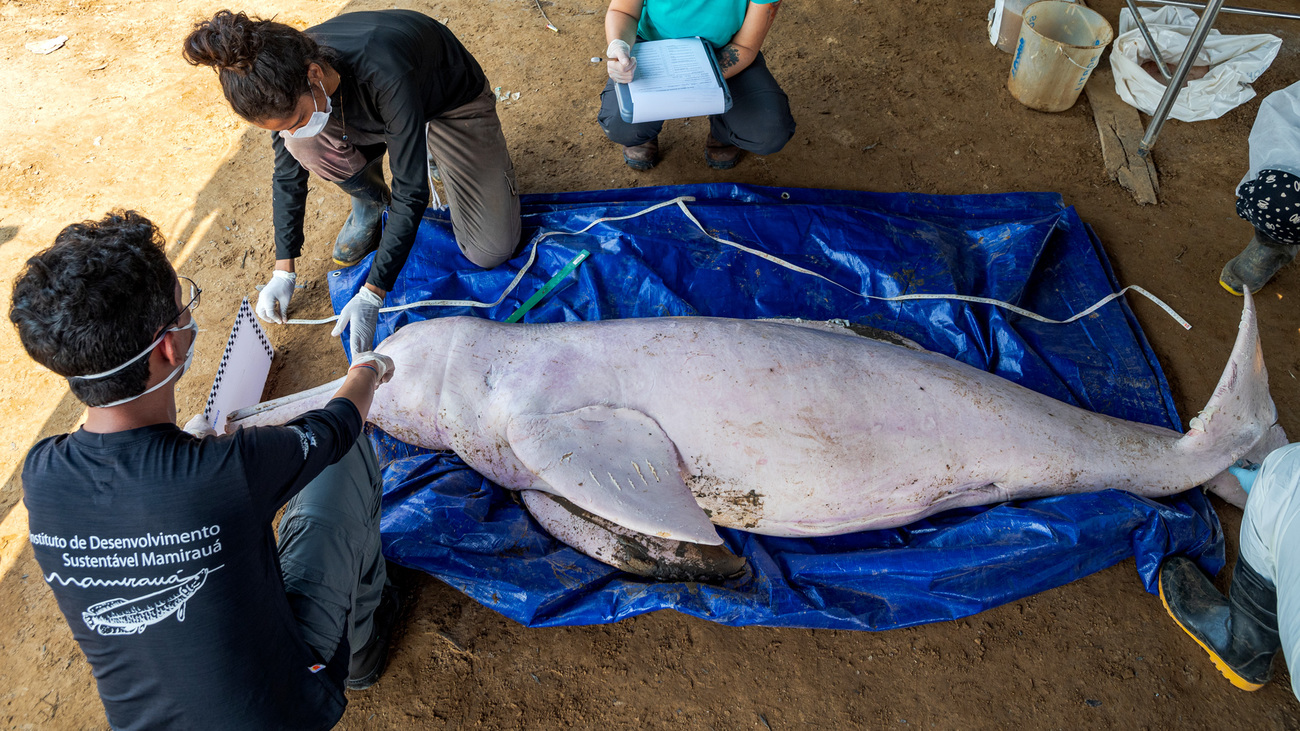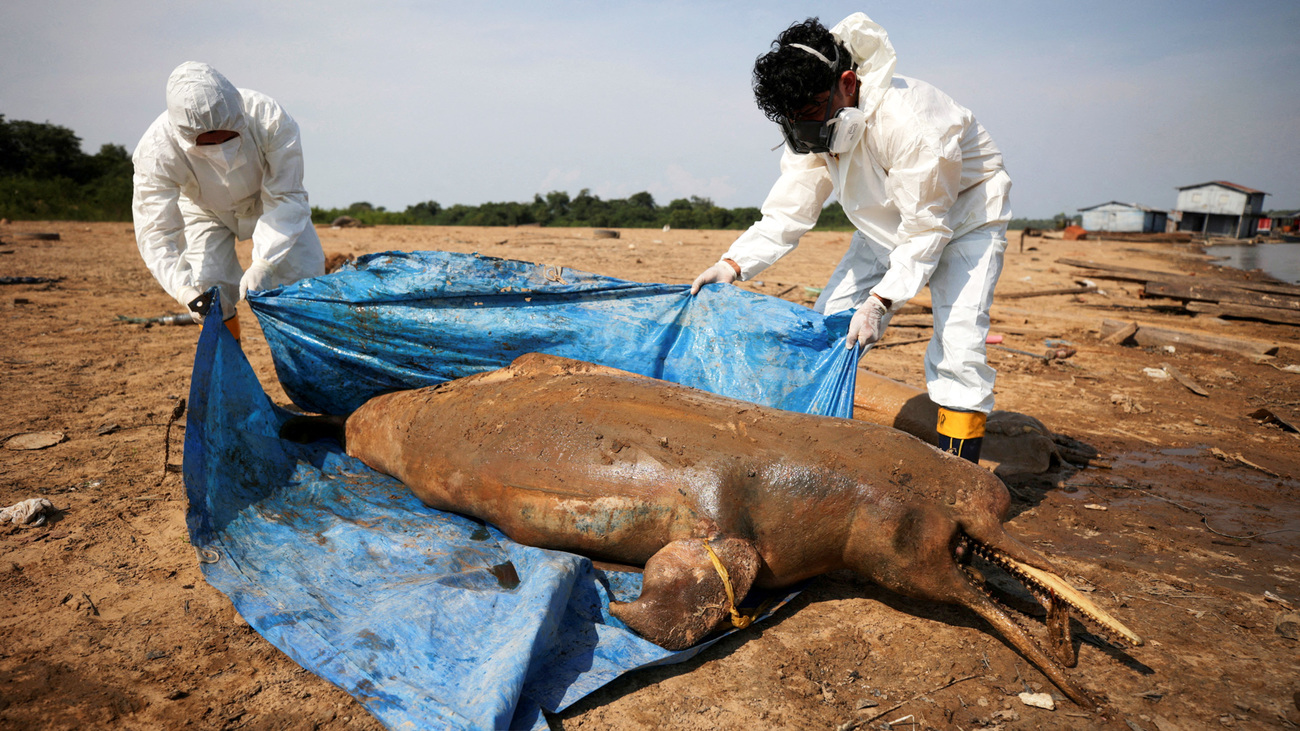Blog
Kenya’s push for international tourism sparks ecological concerns
Read moreIFAW experts respond to hundreds of endangered dolphins in the Amazon
Over the past 10 days, IFAW’s experts have been in Brazil responding to the mass die off of endangered Amazon and Tucuxi river dolphins in Lake Tefé caused by unusually low water levels and high temperatures. Dr. Sarah Sharp and Kira Kasper have been on the water monitoring the animals and as part of the emergency response team to respond to dolphins in distress at any time. They have also been busy training local teams, ensuring they’re prepared in case a similar emergency occurs in the future.

Between responding to calls about distressed dolphins and monitoring, they have been conducting trainings on how to herd dolphins using vessels and acoustic deterrents, how to respond to strandings, and refining emergency care protocols and procedures with the local veterinary team. They also ran drills on assessing, treating, and translocating dolphins in distress.
“I am happy that we were able to use our decades of experience in emergency dolphin response on Cape Cod to help support the team there and complement their local and species-specific knowledge,” says Brian Sharp, IFAW’s director of marine mammal rescue and research. “Now, I am confident that they are well-prepared to help save as many animals as possible when this occurs again.”
Fortunately, the area received some rain over the weekend and there are signs that the waters are cooling down and levels are rising. As our experts prepare to depart Brazil, additional teams will come in over the next couple of weeks to provide support.
20 October 2023
This week, IFAW experts Dr. Sarah Sharp and Kira Kasper arrived in Brazil to assist with the emergency dolphin rescue. The team safely reached the Lake Tefé area, where the endangered Amazon and Tucuxi river dolphins are trapped amidst dropping water levels and rising temperatures.

Sadly, 153 dolphins have already died and up to 400 are still trapped. We are working with our local partners to assess the situation and plan for next steps.
In addition to sending our expert staff, we are supporting our local partner, the Mamiraua Institute for Sustainable Development, with additional grant funding for veterinary supplies, field rescue equipment, and other resources to improve the welfare and rescue of these endangered dolphins.

13 October 2023
In the depths of the Amazon rainforest, endangered dolphins are in crisis as Lake Téfé faces historic drought and heightened water temperatures. At least 140 dolphins have been found dead, with hundreds more trapped in the shallow, overheated waters.
Hope arrives for them this week as IFAW’s dedicated marine mammal stranding experts respond swiftly on the ground.
Driven by the situation’s urgency, the IFAW team, comprised of animal rescue veterinarian Dr. Sarah Sharp and biologist Kira Kasper, will assess the gravity of the crisis and offer innovative solutions. Their deployment, at the invitation of Mamiraua Institute for Sustainable Development (Instituto de Desenvolvimento Sustentável Mamirauá), was also made possible thanks to the generous support of the Dutch Postcode Lottery.
Dr. Sharp, expressing her admiration for the local Brazilian teams’ efforts, emphasised the importance of preventing further suffering for the surviving dolphin population. Despite the dire circumstances, she remains hopeful that collaborative efforts will yield positive outcomes.
As water levels continue to drop and temperatures rise, our experts aim to give the dolphins their best chances of survival. With the dry season expected to peak in the next two weeks, they must act quickly.
Equipped with specialised tools including stretchers, satellite tags, and additional veterinary equipment, the team is prepared for any challenge they might encounter. Their mission is not just to rescue the stranded dolphins, but also to secure the future of both the endangered Amazon and Tucuxi river dolphin species.
IFAW’s collaboration with local rescuers reflects our commitment to global solidarity in the face of climate change and other ecological crises. Every individual dolphin matters in the effort to preserve our planet’s biodiversity, and we are committed to saving as many lives as possible.
Based on Cape Cod, USA, IFAW’s marine mammal rescue and research team sees more frequent live strandings of dolphins than anywhere in the world, and their expertise has been called on by more than 16 countries for training and consultation in recent years.
Our work can’t get done without you. Please give what you can to help animals thrive.
Unfortunately, the browser you use is outdated and does not allow you to display the site correctly. Please install any of the modern browsers, for example:
Google Chrome Firefox Safari